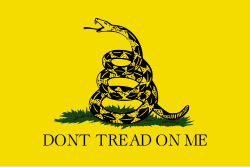
| Part of a series on |
| Taxation |
|---|
 |
| An aspect of fiscal policy |
Tax resistance (also known as a tax strike or tax revolt) is the refusal to pay tax because of opposition to the government that is imposing the tax, or to government policy, or as opposition to taxation in itself. Tax resistance is a form of direct action and, if in violation of the tax regulations, also a form of civil disobedience. Tax resisters are distinct from "tax protesters", who deny that the legal obligation to pay taxes exists or applies to them. Tax resisters may accept that some law commands them to pay taxes but they still choose to resist taxation.
Contents
Examples of tax resistance campaigns include those advocating home rule, such as the Salt March led by Mahatma Gandhi, and those promoting women's suffrage, such as the Women's Tax Resistance League. [1] War tax resistance is the refusal to pay some or all taxes that pay for war and may be practiced by conscientious objectors, pacifists, or those protesting against a particular war. [2]




